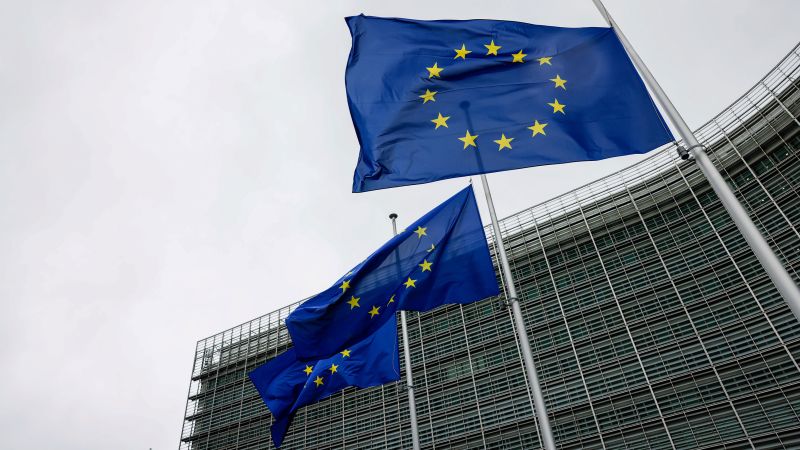One of the initial comprehensive artificial intelligence laws worldwide was sanctioned by European Union legislators on Friday.
The AI Act, also known as the location regulations, introduces a set of rules to promote AI progress while addressing the risks associated with the swift evolution of technology. This legislation prohibits hazardous AI activities that pose a significant threat to individuals’ safety, livelihoods, and rights.
Rising apprehensions regarding the destructive capabilities of artificial intelligence have prompted the enactment of these regulations.
Roberta Metsola, the President of the European Parliament, expressed confidence that this law will establish the global benchmark for the foreseeable future during a press briefing.
Initially proposed in 2021, the regulatory framework classifies AI applications based on risk levels and imposes stricter controls on high-risk scenarios.
The law explicitly bans the most perilous AI applications, including those utilizing deceptive “subconscious techniques,” biometric surveillance systems for law enforcement, and technologies targeting vulnerable populations.
Moreover, the legislation mandates enhanced transparency measures for low-risk applications like chatbots such as OpenAI’s ChatGPT and content-generating systems for images, audio, and videos.
Thierry Breton, the EU Commissioner for Internal Market, emphasized on social media that the #AIAct serves as a comprehensive guide and tool for EU startups and researchers to lead the global artificial intelligence race. He hinted at even greater advancements on the horizon.
The entrance of OpenAI’s ChatGPT robot into the mainstream in November 2022 marked a significant milestone in the adoption of generative AI technologies, triggering a sudden surge in AI development efforts.
Nevertheless, the impact of AI transcends the realm of software giants, affecting various sectors: educators grapple with AI’s ability to complete academic tasks, artists and musicians debate the authenticity of AI-generated content, and the media industry faces both challenges and opportunities.
Some companies pioneering AI technology have also encountered internal turmoil, as evidenced by the abrupt dismissal and subsequent reinstatement of Sam Altman, the CEO of OpenAI, within a tumultuous two-week period in November. The reasons behind these management changes remain unclear even weeks later.






